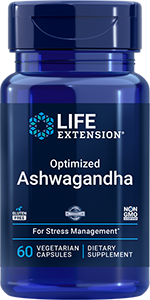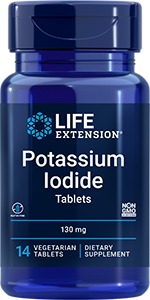
Newsletter
Newsletter
Trial finds lower risk of autoimmune diseases in people who supplemented with vitamin D and omega-3 fatty acids

Results from a trial reported on January 26, 2022, in the BMJ revealed a reduced risk of developing autoimmune diseases among men and women who received vitamin D with or without omega-3 fatty acids from fish oil in comparison with a placebo.1 Autoimmune diseases occur when the body’s immune system attacks normal tissues, and, they often require treatment with medications that have numerous side effects that can be severe.
“This study of more than 25,000 older adults in the US provides evidence that daily [intake of] 2000 IU/day vitamin D or a combination of vitamin D and omega-3 fatty acids for five years reduces autoimmune disease incidence, with more pronounced effects found after two years of [intake],” the authors wrote. “The clinical importance of these findings is high because these are well tolerated, non-toxic…and other effective treatments to reduce the incidence of autoimmune diseases are lacking.”
The trial included 12,786 men aged 50 and older and 13,085 women who were at least 55 years of age upon enrollment in the Vitamin D and Omega-3 Trial (VITAL). Participants received either 2,000 IU vitamin D or a matching placebo, plus 1,000 mg omega-3 fatty acids or a placebo to be consumed daily for a median follow-up period of 5.3 years.
- Among men and women who received vitamin D with or without omega-3s, the risk of developing an autoimmune disease during follow-up was 22% lower than the placebo.
- Among participants who were given both vitamin D and omega-3, the risk of developing an autoimmune disease was 31% lower than those who received both placebos.
- Furthermore, when the researchers excluded data from the first two years of follow-up to better evaluate the effect of treatment, trial participants who received vitamin D had a 39% lower risk of autoimmune disease than the placebo group.
“It is exciting to have these new and positive results for non-toxic vitamins and [nutrients],” stated senior author Karen Costenbader, MD, MPH, of Brigham and Women’s Hospital. “When my patients, colleagues, or friends ask me which vitamins or [nutrients] I’d recommend they take to reduce risk of autoimmune disease, I have new evidence-based recommendations for women aged 55 years and older and men 50 years and older.”
“Autoimmune diseases are common in older adults and negatively affect health and life expectancy,” noted first author Jill Hahn, ScD, of Harvard T.H. Chan School of Public Health. “Until now, we have had no proven way of preventing them, and now, for the first time, we do.”
Products
Apply What You've Learned: Autoimmune Diseases
- A shocking 80 or more diseases may be caused by the immune system attacking its own tissues and cells.2 While the cause of many of these autoimmune diseases is unknown, genetics, infections and environment may be factors that contribute to their development.2
- Blood testing can help your doctor diagnose autoimmune diseases. While there are currently no cures for these diseases, treatments exist.2 Individuals with an autoimmune disease should collaborate with their physicians to manage their conditions.
- Autoimmune diseases often have non-specific symptoms such as fatigue, but there also may be redness, swelling, warmth and pain, which are classic signs and symptoms of inflammation.3 Dietary measures and interventions that help support a healthy inflammatory response may help.4
- Curcumin is well-recognized for its ability to help manage inflammation and has numerous studies showing it may be of benefit in autoimmune disease.5 An extract of white peony root also may help restore balance to an overly active immune system.6,7
References
- Hahn J et al. BMJ. 2022 Jan 26;376:e066452.
- “Autoimmune diseases.” National Institute of Allergy and Infectious Diseases. https://www.niaid.nih.gov/diseases-conditions/autoimmune-diseases
- “Autoimmune diseases.” Medline Plus. National Library of Medicine. https://medlineplus.gov/autoimmunediseases.html
- Galland L. Nutr Clin Pract. 2010 Dec;25(6):634-40.
- Chamani S et al. Phytother Res. 2022 Mar 18.
- Wang YN et al. Phytother Res. 2014 Mar;28(3):372-81.
- Jiang H et al. J Ethnopharmacol. 2020 Aug 10;258:112913.
Featured Life Extension Magazine® Article
Restore Healthier Glucose Levels, by Michael Downey
Chronically high blood glucose levels often exist in people who have not been diagnosed with diabetes. The condition can lead to a greater risk of heart disease, stroke, dementia, cancer and accelerated aging. High fasting blood glucose is a component of metabolic syndrome, which increases the risk of developing diabetes and cardiovascular disease.
While mainstream physicians usually do not treat high blood glucose in the absence of a diabetes diagnosis, natural options, including cinnamon, the mineral chromium, the herb amla, the Himalayan nutrient shilajit and iodine-rich brown seaweed help support healthy glucose levels through various mechanisms.
What's Hot
Health Concern
VITAL findings for vitamin D and omega-3
Analysis of data obtained in The VITamin D and OmegA-3 Trial (VITAL), which is the largest and most recent clinical trial to evaluate the association of vitamin D or fish oil supplementation with the risk of developing cancer or cardiovascular disease, revealed protective effects for fish oil against heart attack and for vitamin D against the risk of dying from cancer.

Arthritis - Rheumatoid
Rheumatoid arthritis is not only a painful and debilitating disease, but it also increases your risk of death by nearly 40%.
Related Life Extension Magazine® Articles

Causes of the Autoimmune Pandemic and How to Get Healthy
In their new book, Chronic, Dr. Steven Phillips and Dana Parish provide techniques for treating chronic, undiagnosed infections, which they believe are the true causes of autoimmune diseases.

Impact of Vitamin D on Autoimmune Risk
A major clinical trial showed that supplementing with vitamin D3 and omega-3 reduced incidence of autoimmune disease by 25%-30%.
Life Extension Magazine® Issue Now Online
A remarkable number of healthy-longevity findings have been published over the past 18 months.





